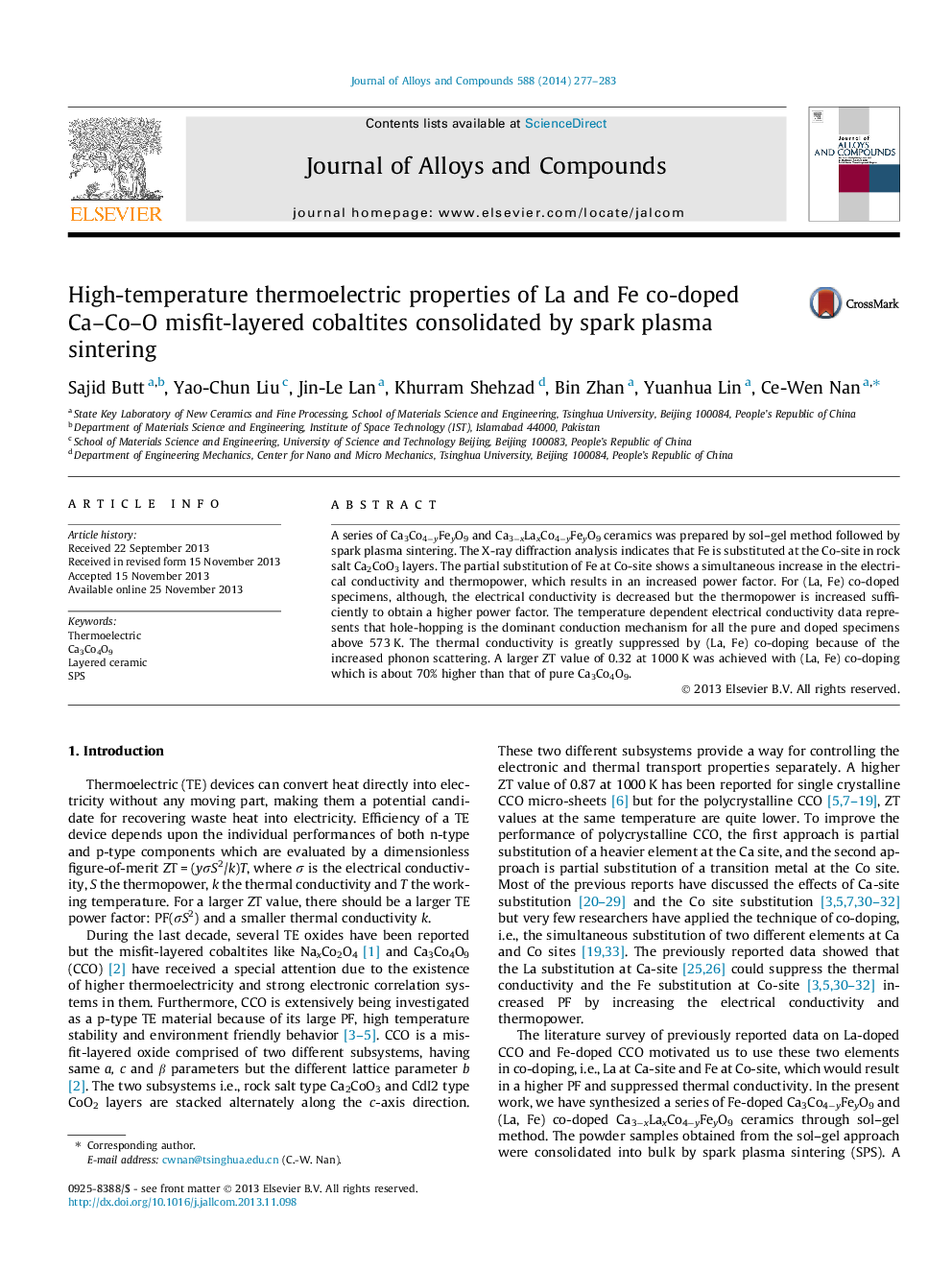| Article ID | Journal | Published Year | Pages | File Type |
|---|---|---|---|---|
| 1612182 | Journal of Alloys and Compounds | 2014 | 7 Pages |
Abstract
A series of Ca3Co4âyFeyO9 and Ca3âxLaxCo4âyFeyO9 ceramics was prepared by sol-gel method followed by spark plasma sintering. The X-ray diffraction analysis indicates that Fe is substituted at the Co-site in rock salt Ca2CoO3 layers. The partial substitution of Fe at Co-site shows a simultaneous increase in the electrical conductivity and thermopower, which results in an increased power factor. For (La, Fe) co-doped specimens, although, the electrical conductivity is decreased but the thermopower is increased sufficiently to obtain a higher power factor. The temperature dependent electrical conductivity data represents that hole-hopping is the dominant conduction mechanism for all the pure and doped specimens above 573Â K. The thermal conductivity is greatly suppressed by (La, Fe) co-doping because of the increased phonon scattering. A larger ZT value of 0.32 at 1000Â K was achieved with (La, Fe) co-doping which is about 70% higher than that of pure Ca3Co4O9.
Related Topics
Physical Sciences and Engineering
Materials Science
Metals and Alloys
Authors
Sajid Butt, Yao-Chun Liu, Jin-Le Lan, Khurram Shehzad, Bin Zhan, Yuanhua Lin, Ce-Wen Nan,
